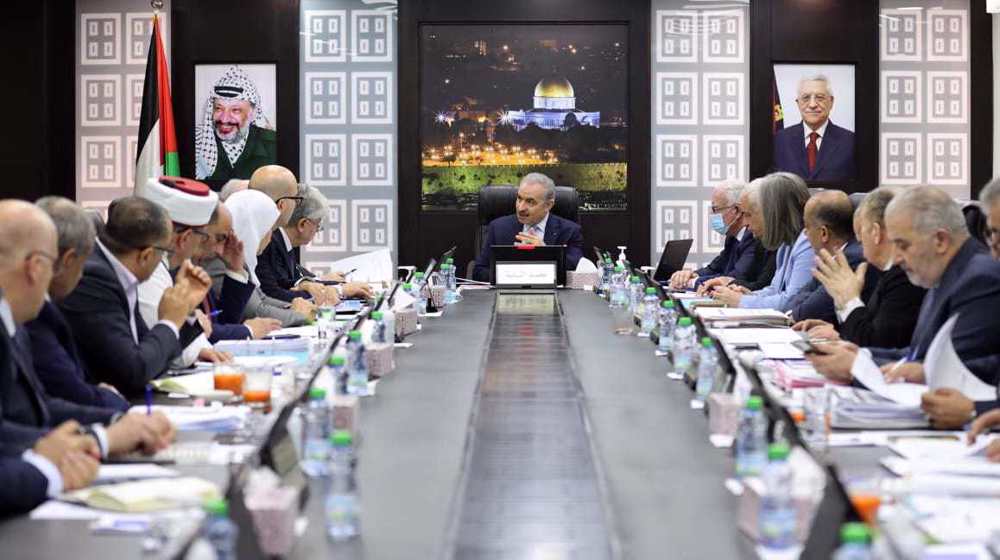Iran’s Foreign Ministry spokesman has vehemently condemned a meeting between Israeli and American officials and foreign ministers from four Arab states in the occupied Negev, calling it betrayal of the cause of Palestine.
Saeed Khatibzadeh’s remarks on Monday came after the foreign ministers of the United Arab Emirates, Bahrain and Morocco – three Arab countries that normalized relations with Israel in 2020 – came together for a meeting with Israeli officials in the occupied Negev region, with US Secretary of State Antony Blinken and Egypt’s foreign minister, Sameh Shoukry, also in attendance.
Condemning the “evil meeting” in the occupied territories, the Iranian spokesman described it as the betrayal of the cause of the liberation of Palestine.
“Any move to normalize and establish relations with the terrorist Zionists and the occupiers of al-Quds is a stab in the back of the oppressed Palestinian nation and a gift to the child-killing Israeli regime to continue the killing of the [Palestinian] people and occupation of their land,” Iran’s Foreign Ministry spokesman said.
“Historical experience has proven that the process of compromise and submission has brought its advocates nothing but defeat and humiliation.”
The Iranian spokesperson emphasized that the occupied Palestinian territories will not be liberated unless through resistance of the Palestinian nation and support of Muslim nations and governments.
Khatibzadeh concluded his remarks by warning against the Zionists’ efforts to foment sedition and mischief in the region.
He also indicated Iran’s readiness to cooperate and expand its relations with regional countries in order to counteract the Zionist and American plots that aim to sow discord and spread instability in the West Asia region.
Top diplomats from the United Arab Emirates, Morocco, Egypt, Bahrain, the United States, and Israel wrapped up a two-day meeting in the Negev desert on Monday with the purpose of pressing ahead with a US-brokered normalization of relations between the Arab states and the Israeli regime.
READ ALSO: Nearly 140 Arab rights groups demand an end to the Saudi war, the siege on Yemen
Palestinian Prime Minister Mohammad Shtayyeh also on Monday condemned the meeting in the occupied Negev, saying holding such meetings while Tel Aviv continues its occupation is just an “illusion.”
“We’re following with concern Israel’s movement in the region,” the Palestinian premier said, adding, “Arab normalization meetings without ending the Israeli occupation of Palestine are just an illusion, a mirage, and a free reward for Israel.”
According to a report, Israel hosts rare summit with Blinken, Arab foreign ministers
Morocco, UAE, Bahrain to attend, Egypt foreign minister also to participate.
Israeli and Arab partners convened for a rare summit in Israel on Sunday attended by U.S. Secretary of State Antony Blinken, who sought to reassure the U.S. allies over Washington’s diplomacy with Iran.
The issue is likely to dominate the two-day gathering, which includes foreign ministers from three Arab states that normalised ties with Israel in 2020, even as peacemaking with the Palestinians remained stalled.
Blinken’s visit comes as some U.S. allies in the region question President Joe Biden administration’s commitment and brace for fallout from an Iranian nuclear deal and the Ukrainian crisis.
The nuclear talks had been close to an agreement several weeks ago until Russia made last-minute demands of the United States, insisting that sanctions imposed on Moscow over its invasion of Ukraine should not affect its trade with Iran.
Restoring a 2015 nuclear deal “is the best way to put Iran’s nuclear programme back in to the box it was in”, Blinken said.
But whether or not that happens, “our commitment to the core principle of Iran never acquiring a nuclear weapon is unwavering,” he said alongside Israeli counterpart Yair Lapid in Jerusalem, before the summit got under way.
“The United States will continue to stand up to Iran when it threatens us or when it threatens our allies and partners,” Blinken said.
In Israel, internal security concerns deepened when Arab assailants, identified by security officials as Israeli citizens and Islamic State sympathisers, shot and killed two border police officers in Hadera, a city 50 km (30 miles) north of Tel Aviv. Police shot the two men dead.
Islamic State claimed responsibility for the attack, according to a statement posted on the group’s Telegram account.
On Twitter, Blinken wrote: “We condemn today’s terrorist attack in Hadera, Israel. Such senseless acts of violence and murder have no place in society.” At the summit, Blinken is also expected to press Arab allies to step up support for Ukraine to fend off Russia’s invasion as several Gulf nations have so far stopped short of providing meaningful assistance.
After talks with Blinken, Israeli Prime Minister Naftali Bennett, who has cautioned that a nuclear deal with Iran would not be binding on Israel, said he hoped Washington “will hear the concerned voices from the region, Israel’s and others'”.
Attending the Lapid-hosted summit in a desert hotel will be the United Arab Emirates, Bahrain and Morocco, which were part of the so-called Abraham Accords brokered by the Trump administration to normalise ties with Israel.
Egypt’s foreign minister, whose country on Saturday marked 43 years of peace with Israel, will also join the summit.
“Normalisation is becoming the new normal in the region,” Blinken said, adding that Washington hoped “to bring others in”.
Before travelling to the summit venue, Blinken held talks in the occupied West Bank with Palestinian President Mahmoud Abbas and voiced continued U.S. commitment to a two-state solution of the Israeli-Palestinian conflict.
The venue for the foreign ministers’ meeting is Sde Boker, where Israel’s founding father and first prime minister, David Ben-Gurion, retired and is buried.

